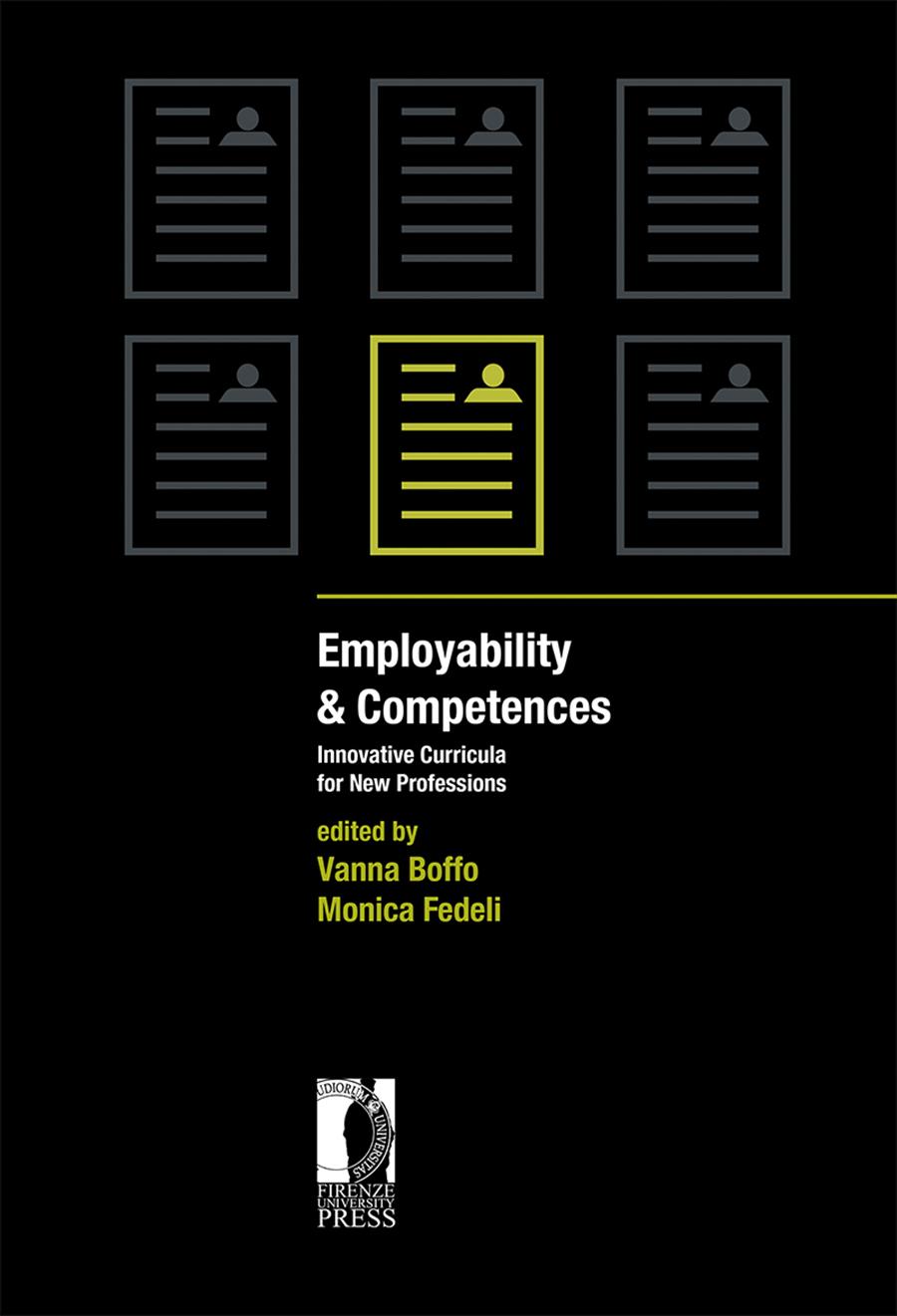- Employability & Competences
- Edited by Vanna Boffo, Monica Fedeli
The Pursuit of Happiness: a Reflection on the Calling Construct
- Barbara Barbieri
- © 2018 Author(s) |
- CC BY 4.0
- DOI: 10.36253/978-88-6453-672-9.07
This brief chapter arises from reflections on the research studies relating to the Calling construct, carry out by colleagues from the University of Padua. Basically this is a reasoning on the implications of which we should (as academics) always keep in mind when we are called to think about career paths for students, and how it could be important to help students to develop a Calling, putting them in the conditions of making an aware and passionate choice about their future working life.
- Keywords:
- calling,
- multidimensional construct,
- vocational behavior,
- students career,
- University of Padua,
University of Cagliari, Italy
- Bakker, A.B. and Demerouti E. 2007, The Job Demands-Resources model: State of the art, «Journal of Managerial Psychology», XXII (3), 309-328.
- Dalla Rosa A, Vianello M. and Anselmi P. 2017, What does it mean to have a calling? A construct validation of the Integrated Multidimensional Calling Scale. DOI: 10.17605/osf.io/86ink
- Dalla Rosa A., Galliani E.M. and Vianello M. 2014, Theories and Measures of Occupational Calling: A Review and Research Agenda, «Educational reflective practices», 2, 99-121.
- Dalla Rosa A., Galliani E.M. and Vianello M. 2017, An integrative model of Career Calling and meta-analyses of its nomological network, in Boffo V., Fedeli M., Lo Presti F., Melacarne C., Vianello M. (eds.), Employability, Teaching and Learning, and Guidance: New Strategies in Higher Education, Pearson, London, 1-49.
- Dik B.J. and Duffy R.D. 2009, Calling and vocation at work definitions and prospects for research and practice, «The Counseling Psychologist», XXXVII (3): 424-450. DOI: 10.1177/0011000008316430
- Eisenberger R., Armeli S., Rexwinkel B., Lynch P.D. and Rhoades L. 2001, Reciprocation of perceived organizational support, «Journal of Applied Psychology», LXXXVI (1), 42.
- Elangovan A.R., Pinder C.C. and McLean M. 2010, Callings and organizational behaviour, «Journal of Vocational Behavior», LXXVI (3), 428-440. DOI: 10.1016/j.jvb.2009.10.009
- Hall D.T. and Chandler D.E. 2005, Psychological success: When the career is a calling, «Journal of Organizational Behavior», XXVI (2), 155-176.
- Pierro A., Kruglanski A.W. and Higgins E.T. 2006, Regulatory mode and the joys of doing: Effects of ‘locomotion’ and ‘assessment’ on intrinsic and extrinsic task-motivation, «European Journal of Personality», XX (5), 355-375.
- Wrzesniewski A., McCauley C., Rozin P. and Schwartz B. 1997, Jobs, careers, and callings: People’s relations to their work, «Journal of Research in Personality», XXXI (1), 21-33. DOI: 10.1006/jrpe.1997.2162
Chapter Information
Chapter Title
The Pursuit of Happiness: a Reflection on the Calling Construct
Authors
Barbara Barbieri
Language
English
DOI
10.36253/978-88-6453-672-9.07
Peer Reviewed
Publication Year
2018
Copyright Information
© 2018 Author(s)
Content License
Metadata License
Bibliographic Information
Book Title
Employability & Competences
Book Subtitle
Innovative Curricula for New Professions
Editors
Vanna Boffo, Monica Fedeli
Peer Reviewed
Number of Pages
510
Publication Year
2018
Copyright Information
© 2018 Author(s)
Content License
Metadata License
Publisher Name
Firenze University Press
DOI
10.36253/978-88-6453-672-9
ISBN Print
978-88-6453-671-2
eISBN (pdf)
978-88-6453-672-9
eISBN (xml)
978-88-9273-119-6
Series Title
Studies on Adult Learning and Education
Series ISSN
2704-596X
Series E-ISSN
2704-5781
